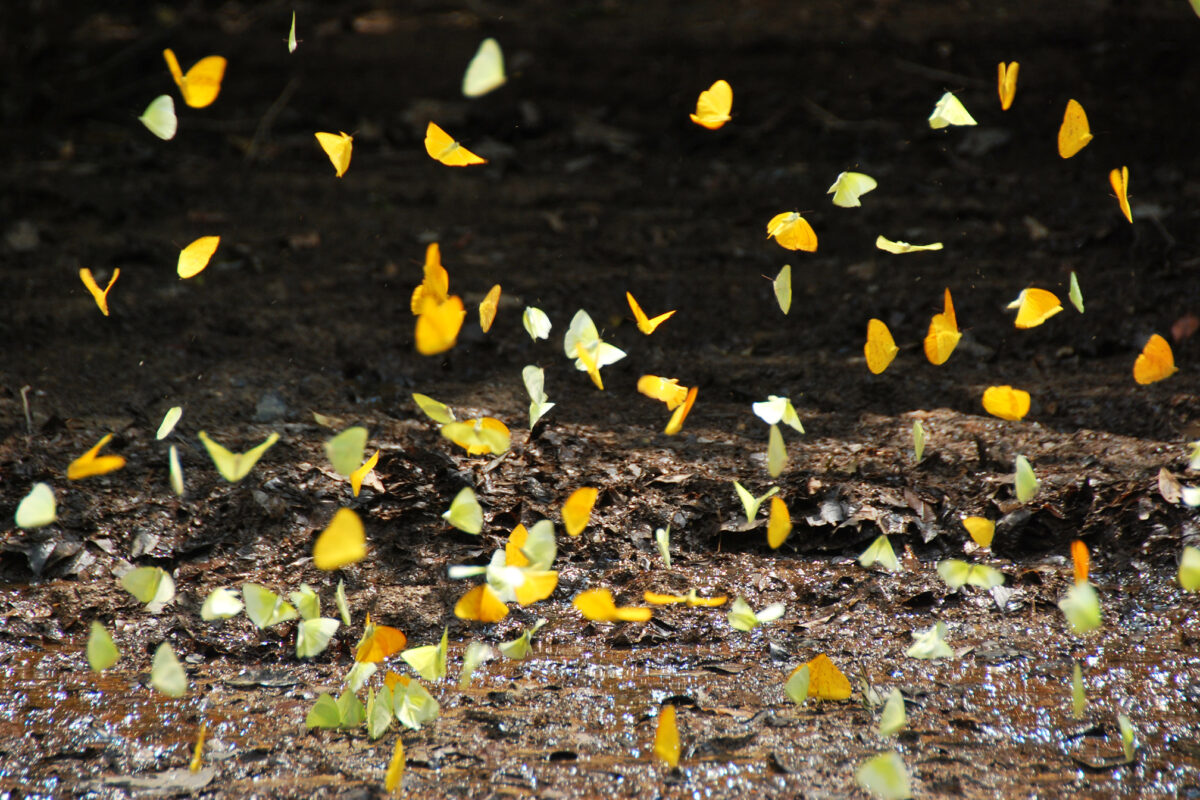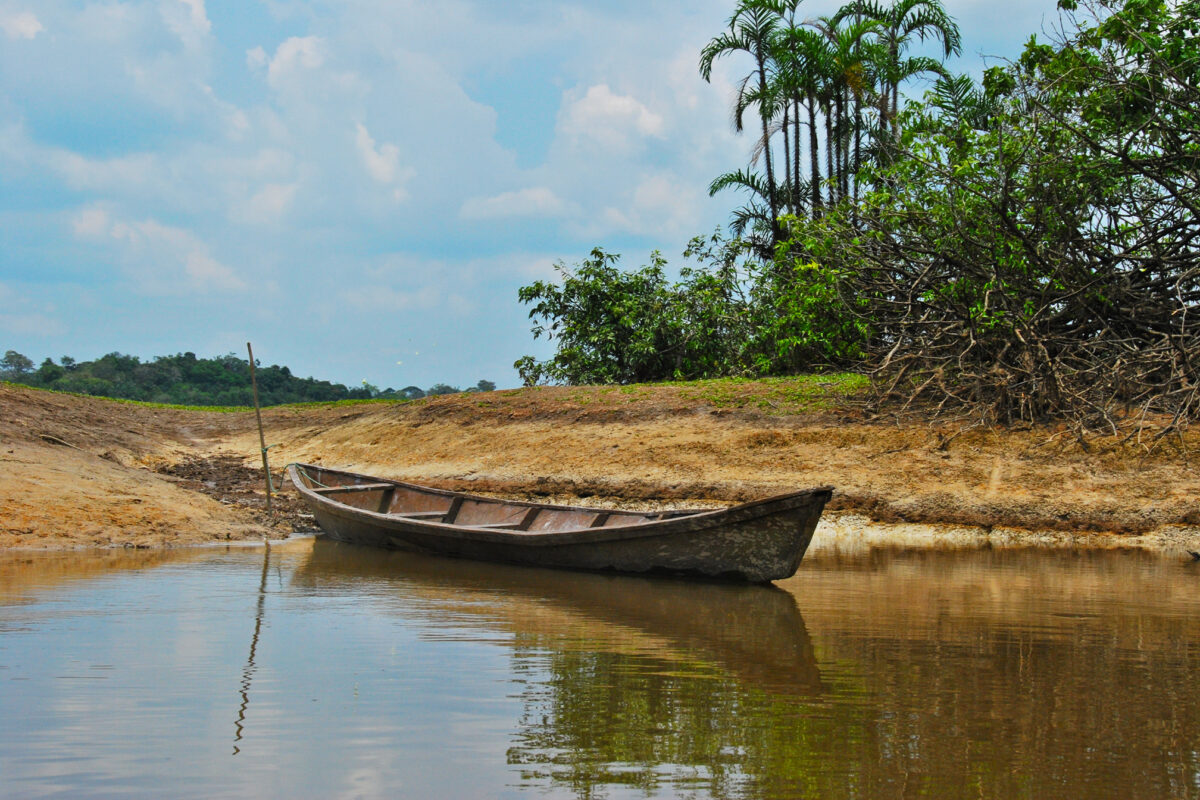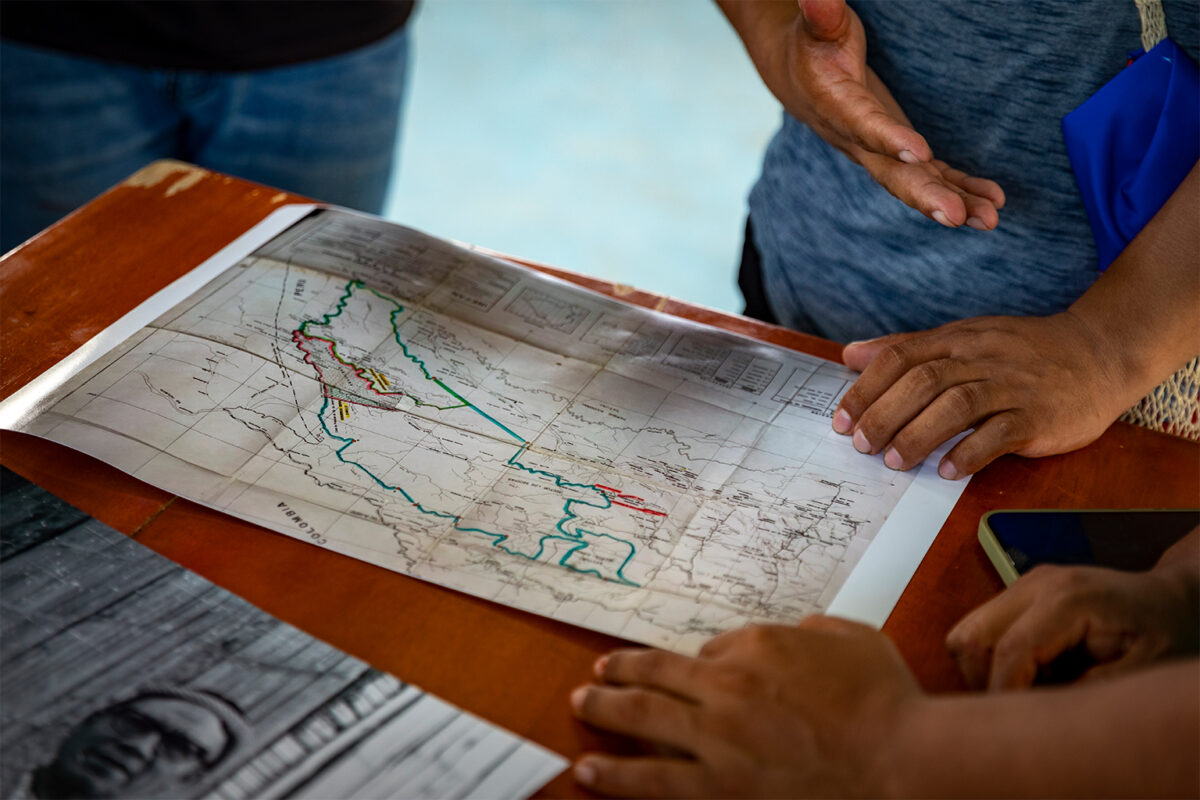- Estrela Matilde, a conservation biologist and executive director of the NGO Fundação Príncipe, has won a Whitley Award, for her work to save sea turtles in the tiny African nation of São Tomé and Príncipe.
- Fundação Príncipe has been working since 2015 to conserve the island of Príncipe’s biodiversity by working with the local community to develop alternative livelihoods that reduce pressure on resources and protect wildlife.
- Matilde’s attention has turned to documenting and tackling plastic pollution after a conservation initiative that put cameras on sea turtles revealed just how much plastic Príncipe’s marine life encounters.
- She plans to use the award money to document via GPS the tides of plastic pollution reaching Príncipe, and to scale up a livelihood project in which local women make trinkets out of the plastic that washes up on the island’s beaches.
Conservation biologist Estrela Matilde has won the 2022 Whitley Award for her work to save sea turtles on the island of Príncipe in Africa’s Gulf of Guinea.
The awards, often referred to as the “Green Oscars,” are given annually by U.K.-based wildlife conservation charity Whitley Fund for Nature, recognizing conservationists from around the world who are pioneering solutions to the biodiversity crisis.
Matilde, though her NGO Fundação Príncipe, based in Príncipe — the smaller of the two islands that make up the tiny nation of São Tomé and Príncipe — has been working since 2015 to conserve the island’s biodiversity by working with the local community to develop alternative livelihoods that reduce pressure on resources and protect wildlife.
Recently, her attention has turned to documenting and tackling plastic pollution, after a conservation initiative that put cameras on sea turtles revealed just how much plastic Príncipe’s marine life encounters.

Threatened biodiversity
The entire island of Príncipe is a massive volcano, home to lush, tropical rainforest, and some of the richest biodiversity in Africa. Its remoteness and volcanic origins have resulted in some of the highest levels of endemism found anywhere on Earth, including more than 40 unique animal species.
With 64 staff members, Fundação Príncipe implements terrestrial and marine conservation projects. Six years ago, Fundação Príncipe launched its sea turtle conservation project. The island is an important nesting site for marine turtles, with three of the world’s seven marine turtle species laying their eggs on the beaches here. With turtles part of the island’s traditional cuisine, hunting for food as well as more organized poaching had led to a decline in turtle populations.
Matilde and her foundation set out to change this.
“We hired previous poachers as monitors protecting the nesting beaches while we worked on shifting the community’s mindset,” Matilde told Mongabay in a phone interview. “We taught them a turtle was worth more alive than dead as many tourists come to the island to witness the turtles.”
With a legal ban on the consumption and sale of turtle meat, Matilde and her team report achieving a near-zero poaching rate, increasing the number of nests by 43% since the 2015-16 breeding season, and doubling the number of hatchlings released to 130,000.
But when Matilde was experimenting with new technology, tagging female turtles with video cameras to observe their behavior, she was in for a surprise.
“Videos recorded by tagged turtles contained more plastic debris than other turtles, with plastic appearing in nearly a third of all footage,” she said.

Through ingestion, entanglement, and degradation of the marine environment on which wildlife and local people rely, plastic waste is an urgent threat to the turtles and other marine species.
Matilde soon began another conservation project aimed at tackling the plastic problem, launching a scheme in which community members collect washed-up plastic bottles for her NGO, where women-led enterprises turn the plastics into trinkets for tourists.
“We were able to collect 750,000 plastic bottles. But we soon realized a significant amount of these bottles were not coming from the island but rather are washed ashore from other places,” Matilde said.
Matilde, who applied for the Whitley Award to expand these efforts, was accepted after a global call for application and a rigorous process involving an expert judging panel. On April 27, she was awarded her prize at the Royal Geographical Society in London.
“Estrela is an inspirational leader, empowering the people of Príncipe to enact environmental and social change,” Danni Parks, director of the Whitley Fund for Nature, said in a press statement. “Her two-pronged approach to addressing this wave of plastic pollution will ensure improvements are made at every level, with equitable, grassroots recycling enterprises supported by political reform.”

With the 40,000 pound ($50,000) Whitley Award, Matilde will track plastic bottles fitted with GPS transmitters to determine where plastic waste comes from and how it travels to and accumulates on the beaches of Príncipe. She aims to use the data to prompt a political response, and hopefully halve the number of plastic bottles reaching the island. She also plans to double the number of waste-based enterprises, aiming to use 20% of the washed-ashore plastics.
The other Whitley Awards winners include Micaela Camino for empowering communities to defend their human rights and conserve Argentina’s Dry Chaco; Sonam Lama for mutually beneficial conservation for people and red pandas in Nepal’s Himalayas; Dedy Yansyah for Sumatran rhino conservation in Indonesia’s Leuser Ecosystem; Emmanuel Amoah for safeguarding the last stronghold of the West African slender-snouted crocodile in Ghana; and Pablo Hoffmann for nurturing wild plant diversity in Brazil’s Araucaria Forest.
The Whitley Gold Award, worth 100,000 pounds, went to snow leopard expert Charudutt Mishra in India for his groundbreaking work over 25 years. Mishra, through his NGO, has been working across the big cat’s range of 12 countries, pioneering an approach to community-led conservation.
Banner image: Estrela Matilde has been working since 2015 to conserve Príncipe’s biodiversity by working with the local community. Image courtesy of Fundação Príncipe and Yves Rocher.
Correction: This article has been amended to note that while five sea turtle species use Príncipe’s waters, only three species nest on its beaches, and to clarify that Matilde’s NGO does not purchase plastic from collectors.













